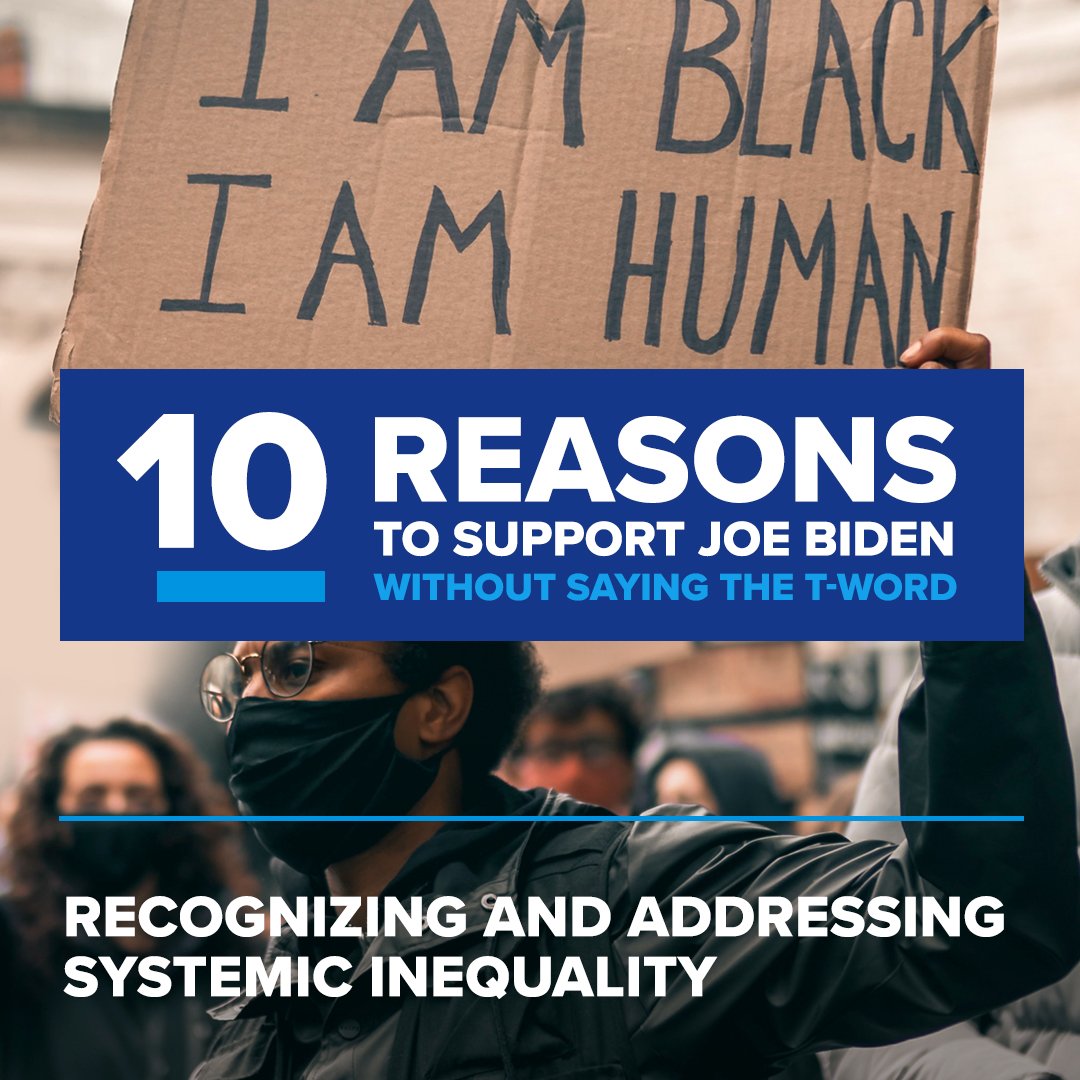Why Vote for Joe? A Biden Administration Will Recognize and Address Systemic Inequality

Joe Biden has released a plan that addresses systemic inequality in multiple aspects of American society, from policing to economic and environmental justice to education and healthcare.
According to Biden, people of color “can never have a fair shot at the American Dream so long as entrenched disparities are allowed to quietly chip away at opportunity.” His plan to address this includes:
Investing in minority businesses and farms
A Biden administration would work to ensure equal access to credit and capital which is currently disproportionally awarded to white-owned businesses. To both increase investment, Joe Biden will:
Double funding for the State Small Business Credit Initiative, which amounts to a roughly $30 billion investment in small businesses, with a focus on those owned by women and people of color.
Expand the New Markets Tax Credit, which gives credits to those who invest in community development organizations, and double Community Development Financial Institutions funding, which supports the creation of local, mission-driven financial institutions in low-income areas.
Provide legal and accounting support to minority-owned businesses to help ensure they are able to access available credit and grant programs.
Creating a Public Credit Reporting Agency within the Consumer Financial Protection Bureau to serve as an alternative rating agency. This would help eliminate racial disparities in credit scoring with new algorithms that do not have a discriminatory impact and by using non-traditional sources of data, like utility bill payment, as ways to establish credit.
Increasing federal contracts for minority-owned businesses
The Obama-Biden administration launched the Federal Procurement Center as part of the Commerce Department’s Minority Business Development Agency to help minority-owned businesses win federal government contracts. Biden will support the expansion of such programs while increasing funding for the Minority Business Development Agency.
Expanding minority homeownership
Biden plans to establish a national standard for housing appraisals in order to address the differences in housing appraisals between white and minority communities.
Additionally, Biden supports a new Homeowner and Renter Bill of Rights that would prevent brokers from leading borrowers into bad loans with unnecessary fees, protect borrowers from foreclosure if they are working on a loan modification and give homeowners a private right of action against mortgage brokers who violate these protections.
Biden will fully implement the Affirmatively Furthering Fair Housing Rule, which tells districts that receive federal funding they must identify and create a plan for addressing discriminatory housing outcomes. And he will restore the government’s power to enforce settlements against discriminatory lenders.
Investment in education
A Biden administration would invest over $70 billion in the Historically Black Colleges and Universities and Minority-Serving Institutions. As a part of this investment, Biden hopes to designate $10 billion in the creation of at least 200 “centers of excellence” that connect students to jobs in fields where minorities are underrepresented.
Reforming the justice system
In an effort to begin reforming the American justice system, a Biden administration would establish an independent Task Force on Prosecutorial Discretion existing outside the Department of Justice to advise on policies that tackle discriminatory outcomes in arrests and charging.
The Biden plan also calls for creating legislation that clarifies pattern-or-practice investigation authority, to increase the Justice Department’s ability to address systemic police or prosecutorial misconduct.
Biden also plans to establish a $20 billion grant program that helps fund criminal justice reform at the state and local level and to invest in public defenders’ offices to give equal access to quality counsel.
Reintegrating formerly incarcerated people
Joe Biden wants to create a system to end and replace cash bail as part of an effort to stop the criminalization of poverty. And, a Biden administration would end the federal use of private prisons.
Joe Biden wants to get rid of the barriers that keep formerly incarcerated people from reintegrating into society. This includes allowing people who have served their time to access public services like Pell grants, student loans, SNAP and housing support.
Biden also believes states should automatically restore voting rights once individuals have served their sentences and would incentivize this practice.
Even this summary leaves out Biden’s plans to invest in economic development, reduce disparities in health outcomes and promote environmental justice. Joe Biden believes America can be an equal and just society and has a plan to start righting centuries of systemic disparities.

